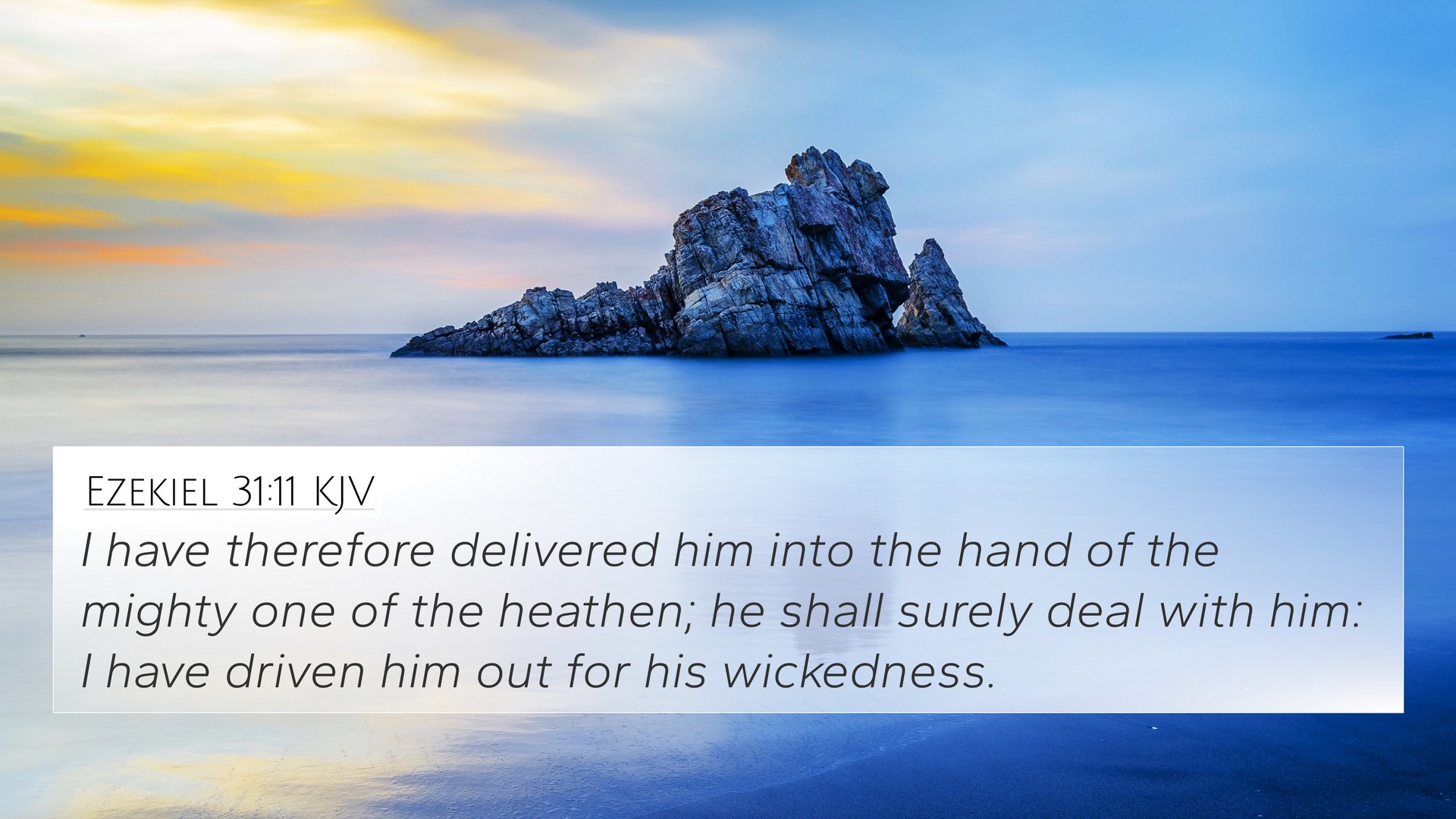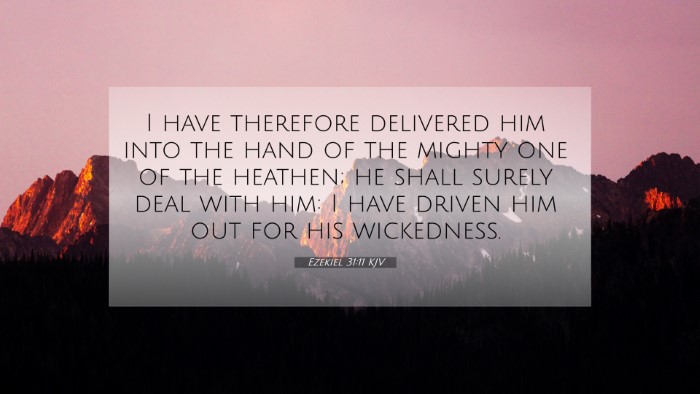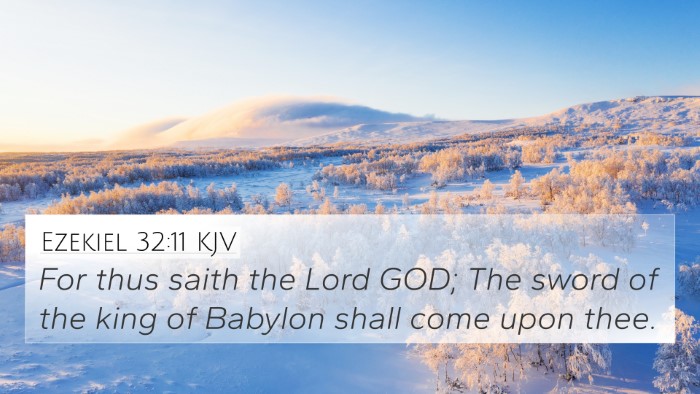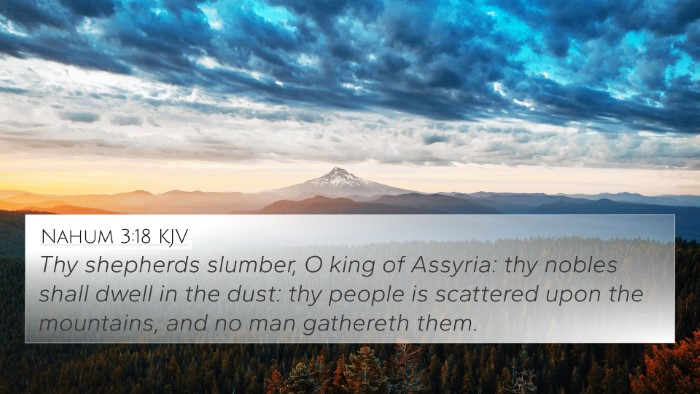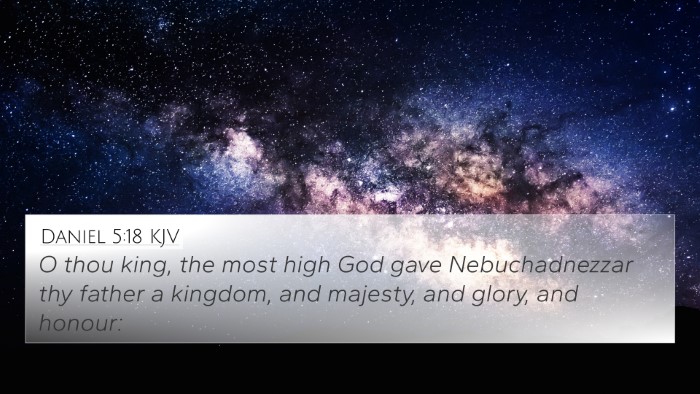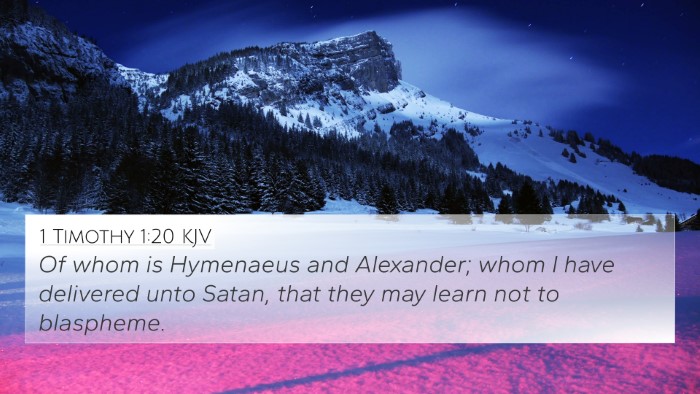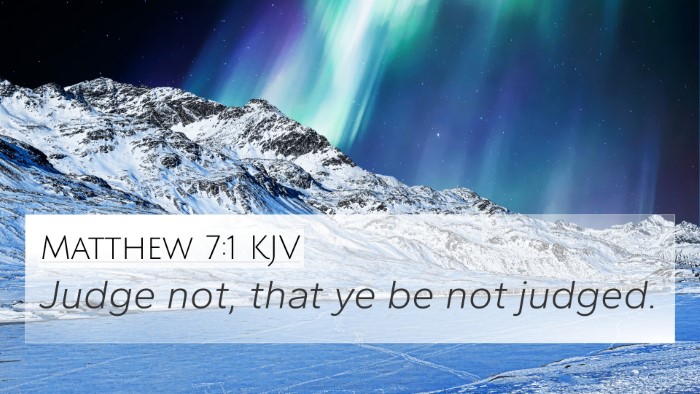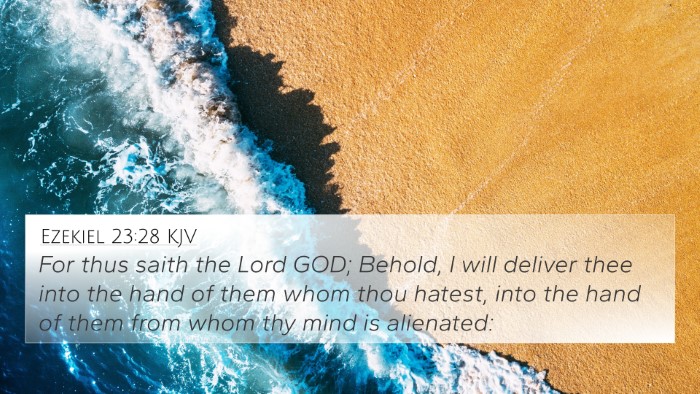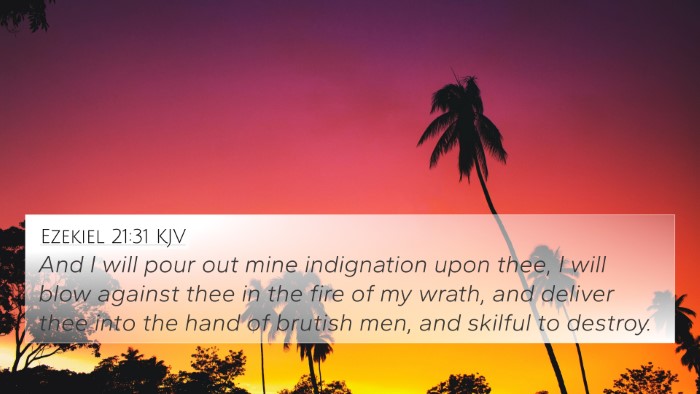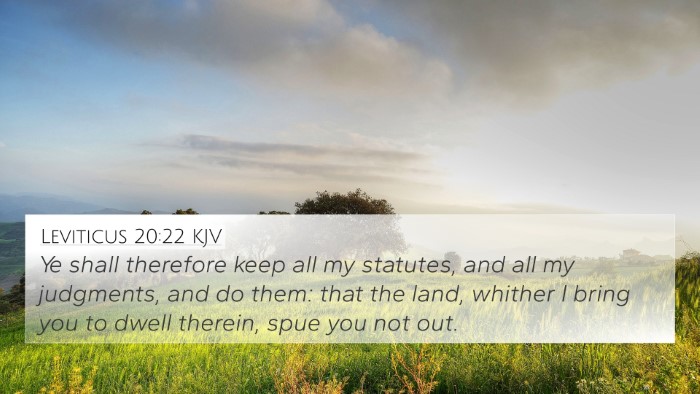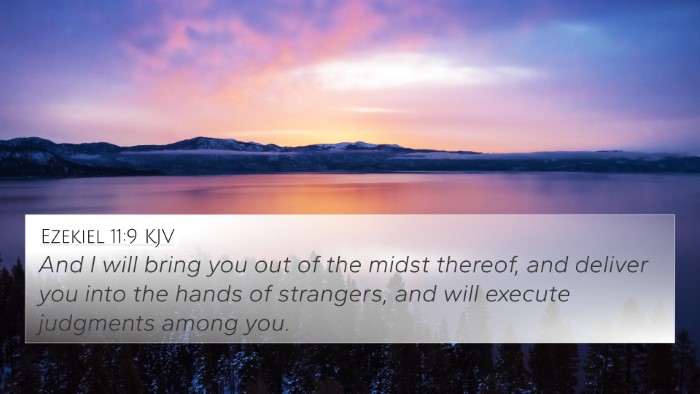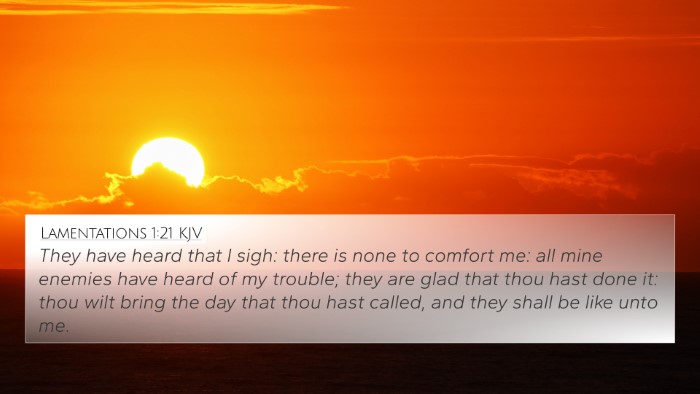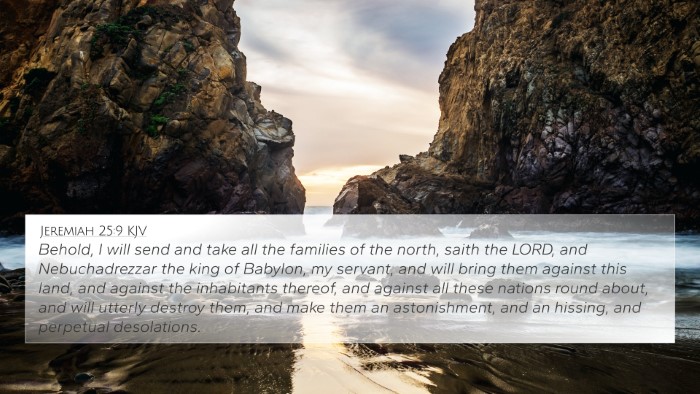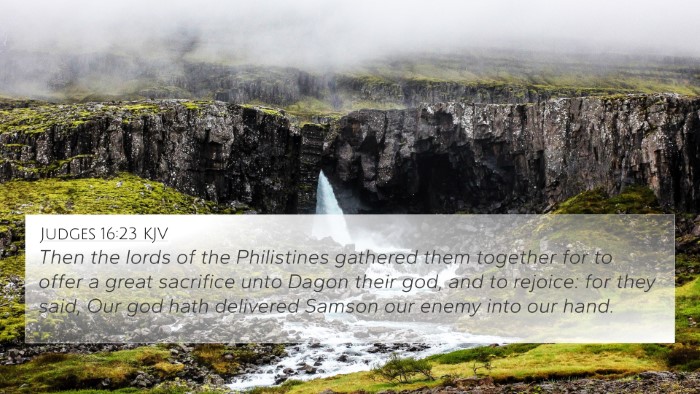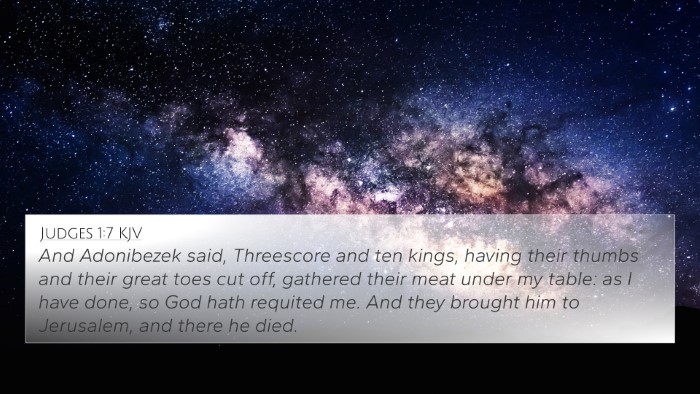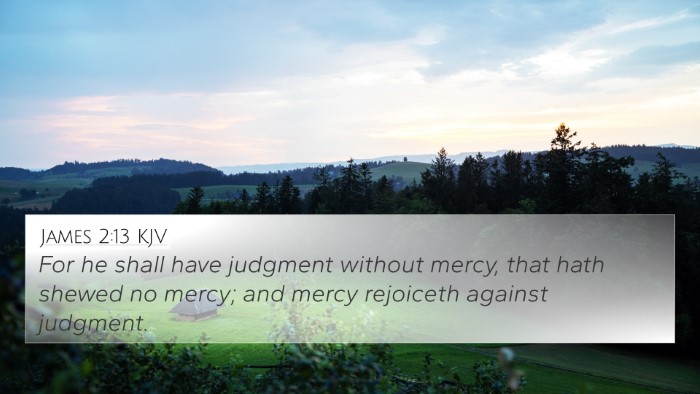Ezekiel 31:11 - Meaning and Insights
Ezekiel 31:11 states: “I have delivered him into the hand of the mighty one of the heathen; he shall surely deal with him: I have driven him out for his wickedness.” This verse reflects God's sovereignty in judgment and the consequences of pride and unrighteousness.
Summary of Interpretation
This verse exemplifies God's authority in delivering judgment, particularly concerning nations represented symbolically through trees in the text. The mighty one referred to in the verse is understood to be a representation of powerful earthly rulers, illustrating the theme of divine retribution.
Commentary Insights
- Matthew Henry: Henry emphasizes the metaphor of the lofty cedar tree representing nations that exhibit pride and arrogance. He explains that God's judgment is inevitable for those who walk in their wickedness, showcasing how God uses foreign powers as instruments of His will.
- Albert Barnes: Barnes discusses the implications of being "delivered into the hand of the mighty one of the heathen," interpreting the 'mighty one' as a symbol of human pride. He highlights that God removes His protection from those who rebel, leading to their downfall.
- Adam Clarke: Clarke elaborates on the concept of being "driven out for his wickedness," drawing parallels to history where God utilizes surrounding nations to execute judgment on nations that stray from righteousness.
Thematic Connections
This verse can be linked to broader themes within the Bible, including divine judgment, humility before God, and the consequences of wickedness. It calls attention to how God interacts with nations through their leaders' actions.
Bible Cross-References
- Ezekiel 30:24: This verse also addresses the judgment against Egypt, emphasizing God’s control over nations.
- Isaiah 14:4: Both passages reflect on the fall of the mighty, showcasing the downfall of the proud.
- Daniel 4:37: Daniel’s proclamation underscores God’s ability to humble those who exalt themselves.
- James 4:10: This New Testament verse reinforces the idea that humility brings elevation from God, contrasting pride's downfall.
- Psalms 75:7: The psalmist states that promotion comes not from the east or west, but God is the judge who puts down one and exalts another.
- Proverbs 16:18: This warns that pride goes before destruction, reflecting the sentiments in Ezekiel 31:11.
- Romans 13:1: This verse speaks to God’s sovereignty over authorities, akin to the mighty one in Ezekiel.
- Revelation 18:2: The fall of Babylon parallels the concept of judgment against nations grounded in wickedness.
Understanding Bible Cross-References
Cross-referencing biblical texts enriches the understanding of scripture. By identifying connections between Bible verses, one can grasp the thematic continuities that convey God's timeless truths and moral teachings.
Tools and Methods for Bible Cross-Referencing
- Utilizing a Bible concordance can aid in identifying word occurrences throughout scripture.
- A Bible cross-reference guide can streamline the process of finding related verses.
- Engaging in cross-reference Bible study fosters deeper theological insights.
- To effectively cross-reference Biblical texts, consider writing summaries of related verses to draw connections.
- Bible reference resources or apps facilitate the accessibility of interconnected verses.
Conclusion
Ezekiel 31:11 serves as a powerful reminder of God's providential oversight in the affairs of nations and the inevitable judgment that comes upon those who indulge in wickedness and pride. By employing tools for Bible cross-referencing and understanding thematic connections, believers can better grasp the holistic message of scripture.
